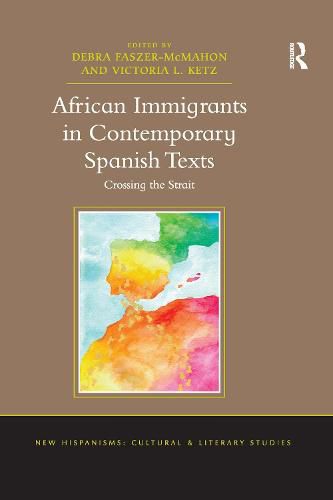Readings Newsletter
Become a Readings Member to make your shopping experience even easier.
Sign in or sign up for free!
You’re not far away from qualifying for FREE standard shipping within Australia
You’ve qualified for FREE standard shipping within Australia
The cart is loading…






Around the turn of 21st Century, Spain welcomed more than six million foreigners, many of them from various parts of the African continent. How African immigrants represent themselves and are represented in contemporary Spanish texts is the subject of this interdisciplinary collection. Analyzing blogs, films, translations, and literary works by contemporary authors including Donato Ndongo (Ecquatorial Guinea), Abderrahman El Fathi (Morocco), Chus Gutierrez (Spain), Juan Bonilla (Spain), and Bahia Mahmud Awah (Western Sahara), the contributors interrogate how Spanish cultural texts represent, idealize, or sympathize with the plight of immigrants, as well as the ways in which immigrants themselves represent Spain and Spanish culture. At the same time, these works shed light on issues related to Spain’s racial, ethnic, and sexual boundaries; the appeal of images of Africa in the contemporary marketplace; and the role of Spain’s economic crisis in shaping attitudes towards immigration. Taken together, the essays are a convincing reminder that cultural texts provide a mirror into the perceptions of a society during times of change.
$9.00 standard shipping within Australia
FREE standard shipping within Australia for orders over $100.00
Express & International shipping calculated at checkout
Around the turn of 21st Century, Spain welcomed more than six million foreigners, many of them from various parts of the African continent. How African immigrants represent themselves and are represented in contemporary Spanish texts is the subject of this interdisciplinary collection. Analyzing blogs, films, translations, and literary works by contemporary authors including Donato Ndongo (Ecquatorial Guinea), Abderrahman El Fathi (Morocco), Chus Gutierrez (Spain), Juan Bonilla (Spain), and Bahia Mahmud Awah (Western Sahara), the contributors interrogate how Spanish cultural texts represent, idealize, or sympathize with the plight of immigrants, as well as the ways in which immigrants themselves represent Spain and Spanish culture. At the same time, these works shed light on issues related to Spain’s racial, ethnic, and sexual boundaries; the appeal of images of Africa in the contemporary marketplace; and the role of Spain’s economic crisis in shaping attitudes towards immigration. Taken together, the essays are a convincing reminder that cultural texts provide a mirror into the perceptions of a society during times of change.